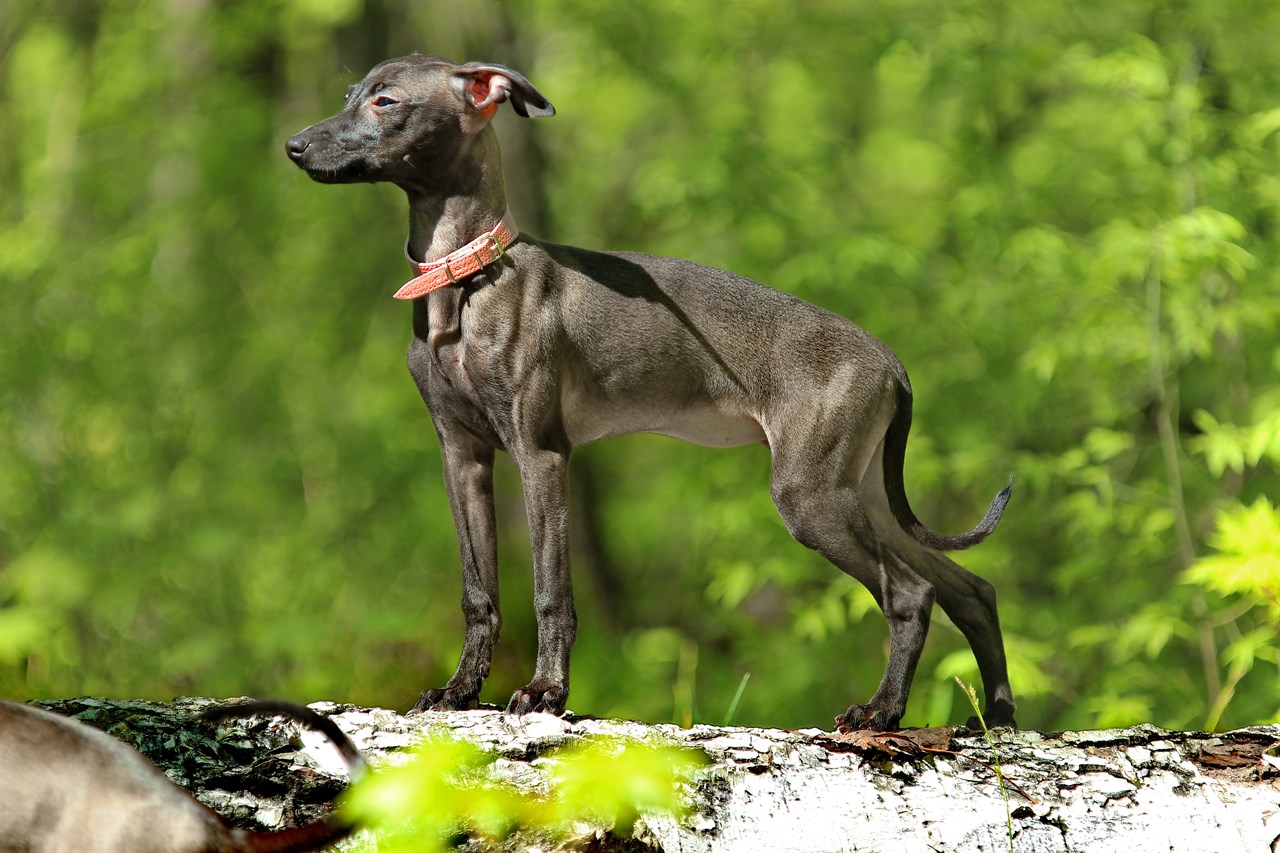The Italian Greyhound's Temperament: A Delightful Mix of Elegance and Affection

The Italian Greyhound is renowned for more than just its exquisite appearance; it also possesses a distinctive temperament that makes it a cherished companion for many dog lovers. Understanding their unique personality traits is crucial for those considering this breed as a pet.
Affectionate and Loyal
Italian Greyhounds are known for their deep affection and loyalty towards their owners. They form strong bonds with their human families and thrive on being close to their loved ones. They often enjoy cuddling and snuggling under blankets, seeking warmth and companionship.
Playful and Energetic
Despite their small size, Italian Greyhounds are spirited and playful dogs. They have bursts of energy and enjoy playful romps, often engaging in spirited games of chase or fetch. Their enthusiasm for play is contagious, making them delightful companions for active individuals or families.
Sensitive and Gentle
These dogs are sensitive by nature and respond best to positive reinforcement training techniques. Harsh discipline or scolding can be detrimental to their confidence and well-being. They thrive in a gentle, loving, and patient environment.
Timid and Shy
Italian Greyhounds can be reserved and timid around strangers. While they may not exhibit aggressive behaviour, they may initially be aloof or cautious when meeting new people. Early socialisation can help them become more comfortable with unfamiliar faces.
Sociable and Prone to Separation Anxiety
Italian Greyhounds are social animals and often prefer the company of their own kind or their human family. They may experience separation anxiety when left alone for extended periods. Providing them with companionship, whether from another dog or through structured activities, can help alleviate this issue.
Curious and Inquisitive
Their curious nature means they enjoy exploring their surroundings. However, this curiosity should be monitored, especially in outdoor areas without secure fencing, as Italian Greyhounds have a strong prey drive and may chase small animals.
Vocal and Alert
While not excessively barky, Italian Greyhounds are alert dogs that will notify their owners of approaching strangers or unusual sounds. They make excellent watchdogs in this regard, though their small size means they may not deter intruders physically.
Do Italian Greyhounds need another dog?
Italian Greyhounds are social dogs and often benefit from the companionship of another dog. However, this isn't a strict requirement, and many Italian Greyhounds live happily as the sole pet in a household, provided they receive sufficient attention and social interaction from their human family.
Are Italian Greyhounds friendly to strangers?
Italian Greyhounds can be reserved or aloof around strangers initially, but they are not typically aggressive. Proper socialisation from a young age can help them become more comfortable with unfamiliar people.
Are Italian Greyhounds sociable?
Yes, Italian Greyhounds are generally sociable dogs. They thrive on human companionship and enjoy being part of the family's activities. They may also get along well with other dogs, making them suitable for multi-pet households.
At what age do Italian Greyhounds calm down?
Italian Greyhounds tend to have bursts of energy, especially in their younger years. They often start to calm down and become less hyperactive around two to three years of age. However, their playful and spirited nature can persist throughout their lives.
Can Italian Greyhounds be aggressive?
Italian Greyhounds are not typically an aggressive breed. Their reserved behaviour around strangers is more rooted in shyness than aggression. However, like all dogs, individual temperament can vary, and early socialisation is essential to ensure a well-adjusted pet.
Do Italian Greyhounds ever calm down?
While Italian Greyhounds may become less hyperactive as they mature, they tend to maintain a playful and energetic disposition throughout their lives. Owners should be prepared for an active and spirited companion.
Why are Italian Greyhounds so hyper?
Italian Greyhounds have a sighthound's genetics, which gives them bursts of energy and a love for running and playing. Their small size means they can be more excitable and may seem hyperactive at times, especially when they're young. Regular exercise and mental stimulation can help manage their energy levels effectively.
In conclusion, Italian Greyhounds are not just elegant in appearance but also in their affectionate and playful personality. Understanding their temperament and providing them with love, companionship, and appropriate training can lead to a fulfilling and loving relationship with this captivating breed.
Italian Greyhound puppies for sale
- Find Italian Greyhound puppies for sale in ACT
- Find Italian Greyhound puppies for sale in NSW
- Find Italian Greyhound puppies for sale in NT
- Find Italian Greyhound puppies for sale in QLD
- Find Italian Greyhound puppies for sale in SA
- Find Italian Greyhound puppies for sale in TAS
- Find Italian Greyhound puppies for sale in VIC
- Find Italian Greyhound puppies for sale in WA